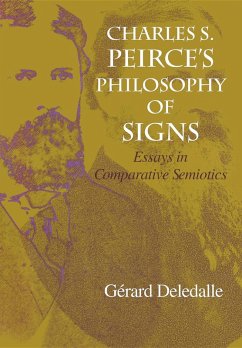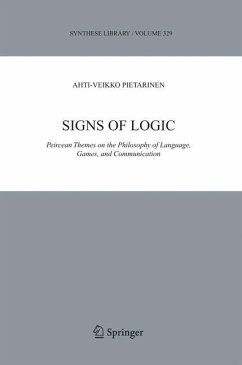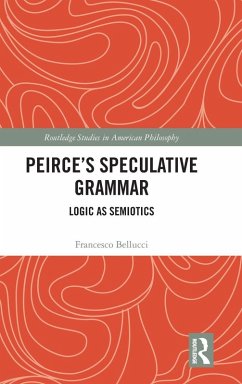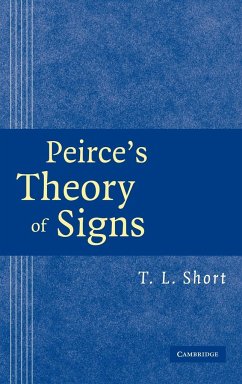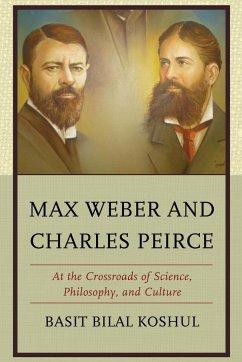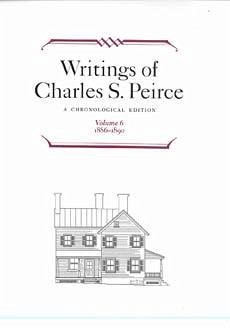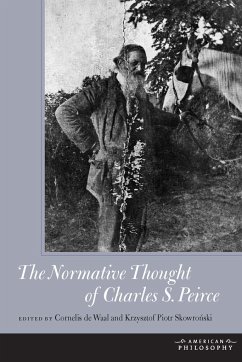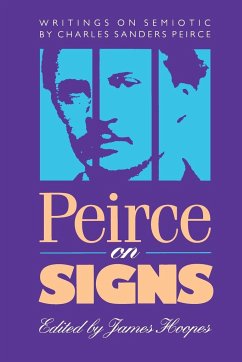
Peirce on Signs
Writings on Semiotic by Charles Sanders Peirce
Herausgeber: Hoopes, James

PAYBACK Punkte
27 °P sammeln!
Charles Sanders Peirce (1839-1914) is rapidly becoming recognized as the greatest American philosopher. At the center of his philosophy was a revolutionary model of the way human beings think. Peirce, a logician, challenged traditional models by describing thoughts not as "ideas" but as "signs," external to the self and without meaning unless interpreted by a subsequent thought. His general theory of signs -- or semiotic -- is especially pertinent to methodologies currently being debated in many disciplines. This anthology, the first one-volume work devoted to Peirce's writings on semiotic, pr...
Charles Sanders Peirce (1839-1914) is rapidly becoming recognized as the greatest American philosopher. At the center of his philosophy was a revolutionary model of the way human beings think. Peirce, a logician, challenged traditional models by describing thoughts not as "ideas" but as "signs," external to the self and without meaning unless interpreted by a subsequent thought. His general theory of signs -- or semiotic -- is especially pertinent to methodologies currently being debated in many disciplines. This anthology, the first one-volume work devoted to Peirce's writings on semiotic, provides a much-needed, basic introduction to a complex aspect of his work. James Hoopes has selected the most authoritative texts and supplemented them with informative headnotes. His introduction explains the place of Peirce's semiotic in the history of philosophy and compares Peirce's theory of signs to theories developed in literature and linguistics.




